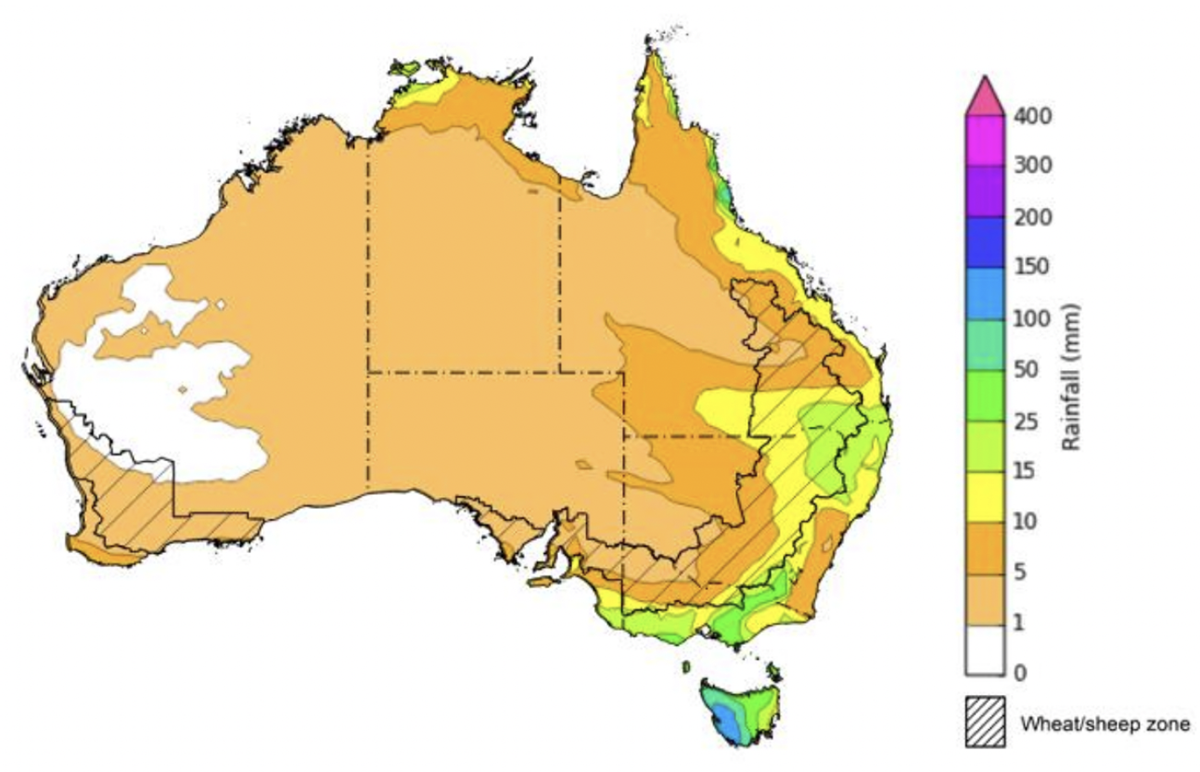September 18, 2025
North Dakota beans ‘hit hard’ by frost, Canadian prairies see harvest delays, and Indian pulses feel the pain of excess rain – this is the week in weather in the pulse-producing zones.

ABARES - Rainfall predictions for September 18-25.

Weather / pulse producing regions / Canada weather / India weather / Australia weather / USA weather
Disclaimer: The opinions or views expressed in this publication are those of the authors or quoted persons. They do not purport to reflect the opinions or views of the Global Pulse Confederation or its members.